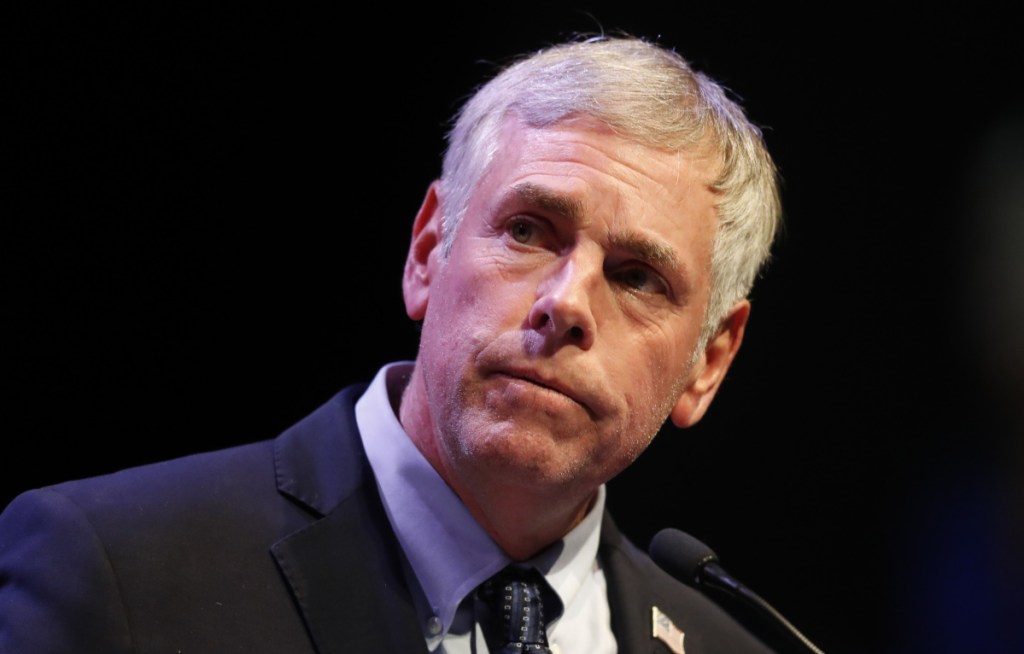A May column that I co-authored discussed a poll of Maine gubernatorial and Cumberland County legislative candidates’ health care policies. No Republicans had responded. In a Sept. 17 letter in the Portland Press Herald, Barry Salter, M.D., wrote that Republican gubernatorial candidate Shawn Moody had not attended the Maine Medical Association annual meeting, while the other candidates had. On his website, Moody devotes to health care less than 20 percent of the space the other candidates do.
Why do Republicans seem so reluctant to state their views on such a vital issue, especially when an idea consistent with conservative principles — respect for tradition, Judeo-Christian values, business, sanctity of life, individual freedoms — is out there: government-funded, privately provided universal health care (Medicare for all)?
Prominent conservatives have accepted government responsibility for health care since at least the 1880s, when Chancellor Otto von Bismarck established universal health insurance in Germany as a way to stimulate the economy and resist socialism.
In 1944, economist Friedrich von Hayek, one of House Speaker Paul Ryan’s heroes, wrote that there is not “any reason why the state should not assist individuals in providing for those common hazards of life against which, because of their uncertainty, few individuals can make adequate provision. … There is no incompatibility in principle between the state providing greater security in this way and the preservation of individual freedom.” Winston Churchill included in the 1945 Conservative Party General Election Manifesto: “We propose to create a comprehensive health service covering the whole range of medical treatment from the general practitioner to the specialist.”
Ronald Reagan wrote in 1979, “I have always felt that medical care should be available to those who cannot otherwise afford it,” and proceeded to expand Medicare. A 1989 Heritage Foundation report stated that “all citizens should be guaranteed universal access to affordable health care,” and a goal of the 2016 Republican platform was “to ensure that all Americans have improved access to affordable, high-quality health care.”
That platform also emphasized “our country’s Judeo-Christian heritage.” The Bible gives healing of the sick top priority, from “I (God) will take sickness away from the midst of thee,” to Jesus’ granting his disciples power “to heal all manner of sickness,” to the “Go and do likewise” instruction of the Good Samaritan parable. Given Scripture’s importance to Republicans, they have good reason, if not the moral imperative, to act on it any way they can.
Warren Buffett argues for a government-funded, privately provided system because of the drain (“tapeworm”) that health insurance puts on American business, and his (Republican) business partner Charlie Munger told Yahoo Finance that he’s for it because of the waste and profiteering he sees in our present system.
MCS Industries CEO Richard Master and other members of the Business Initiative for Health Policy believe that “it is crucial to build a political movement behind Medicare for All, with candidates who are willing to take on the insurance and pharmaceutical industries’ oversized political influence.” In other words, business leaders advocate for a system in which health care no longer distorts competitiveness.
“Lack of health insurance is associated with as many as 44,789 deaths per year in the United States,” a 2009 study found. To support government-guaranteed universal health care, then, is to affirm the sanctity of life.
Such a system would free workers from a drag on raises as well as from the dependence on workplace health benefits that discourages workers from taking more rewarding jobs or becoming entrepreneurs themselves. It would free some of the uninsured, who are limited by illness, to enter the workforce. It would free patients from restrictive networks, and their providers from complex billing and restrictions on treatment plans. Freedom, in fact, is what this system, like conservatism itself, is all about.
Let’s hope that in the future, Republican candidates will be more forthcoming about their health care positions. Support of a government-funded, privately provided universal health care system would certainly be consistent with many conservative principles.
Daniel C. Bryant, M.D., of Cape Elizabeth is chairman of Maine AllCare’s Portland chapter.
Send questions/comments to the editors.



Success. Please wait for the page to reload. If the page does not reload within 5 seconds, please refresh the page.
Enter your email and password to access comments.
Hi, to comment on stories you must . This profile is in addition to your subscription and website login.
Already have a commenting profile? .
Invalid username/password.
Please check your email to confirm and complete your registration.
Only subscribers are eligible to post comments. Please subscribe or login first for digital access. Here’s why.
Use the form below to reset your password. When you've submitted your account email, we will send an email with a reset code.